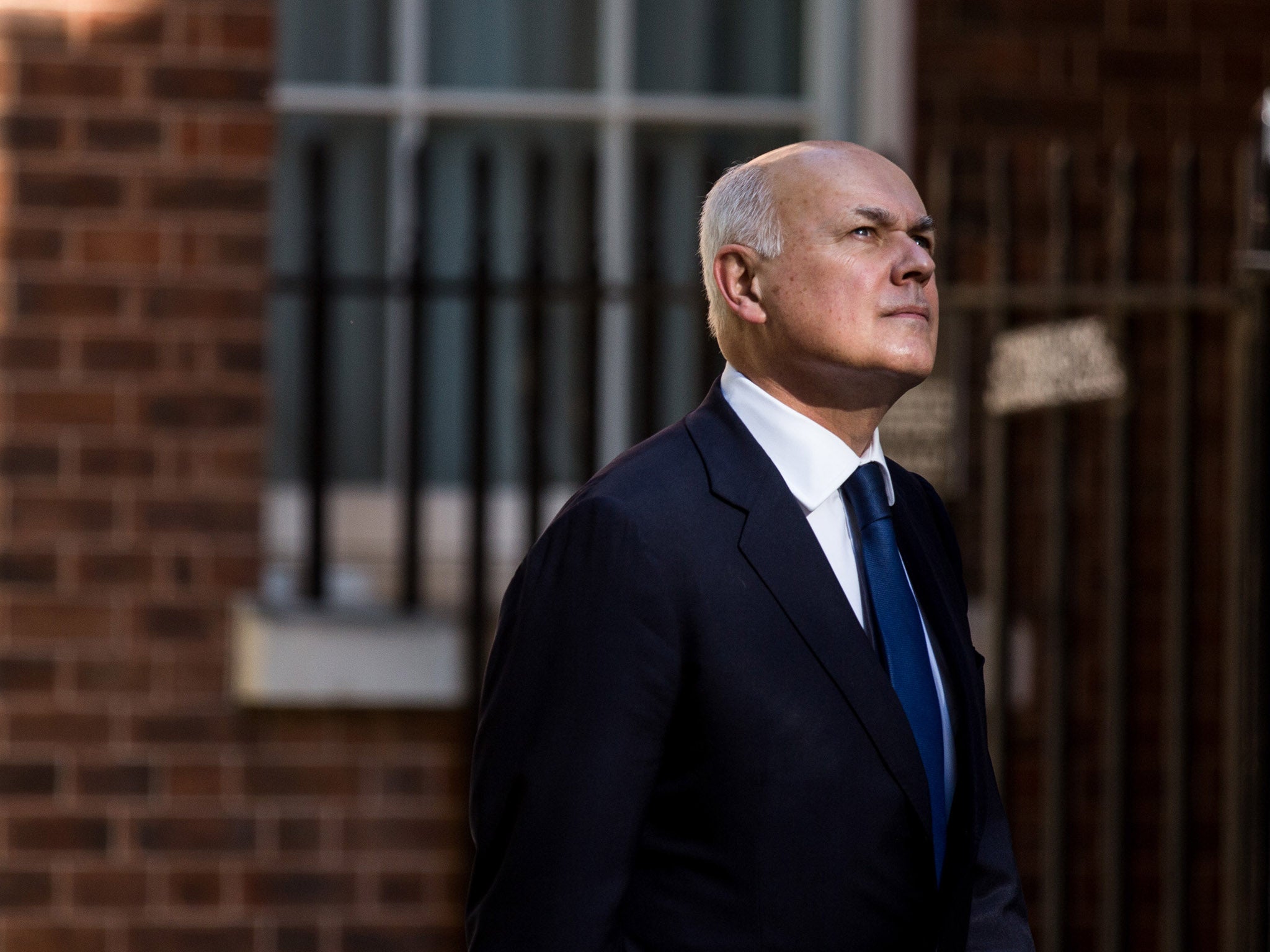DWP in the dock amid complaints of discrimination over disabilities
The department does not appear to have its own house in order in creating a fair working environment

The least that we should expect from our organs of government is that they behave as exemplars. It is both disappointing and not entirely surprising that they rarely manage to achieve this, but such cases are most interesting when they shine a light on the problems faced across our society. To this end, we should cast our eyes in the direction of the Department for Work and Pensions (DWP).
It is quite right that disability campaigners are angered by an internal survey, carried out by the Cabinet Office, which revealed that the number of disabled DWP civil servants who say they have faced discrimination has risen by a quarter in a year. More staff said they were discriminated against on the grounds of disability than over age, race, gender or sexual orientation – and this from the government department which manages the financial support that should allow disabled people to flourish.
Of course, surveys such as these measure attitudes, rather than legally proven cases of workplace discrimination. But they should make us pause for thought, nevertheless. The department does not appear to have its own house in order in creating a fair environment for its workforce. As one disability activist, David Gillon, rightly asks: “How can we trust the DWP to defend [disabled people’s] interests when these figures once more demonstrate that [it is] part of the problem, not the solution?”
The alarming fact is that the problem of discrimination by the very people whose jobs involve, at least in some small way, preventing and mitigating it is no new phenomenon. More than a decade ago, staff working at the Office of the Deputy Prime Minister – led at the time by Labour’s John Prescott – reported similar concerns. Almost a quarter (22 per cent) said that they had witnessed unfair treatment, while 14 per cent of black and minority ethnic employees said they had experienced discrimination. At the time, the ODPM was responsible for overseeing the development of sustainable communities in the UK.
We should demand better from government departments. Iain Duncan Smith and his senior civil servants cannot expect to thaw the chill between the UK’s disabled people and the DWP until a more understanding and supportive culture is fostered within its own walls.
Join our commenting forum
Join thought-provoking conversations, follow other Independent readers and see their replies
Comments